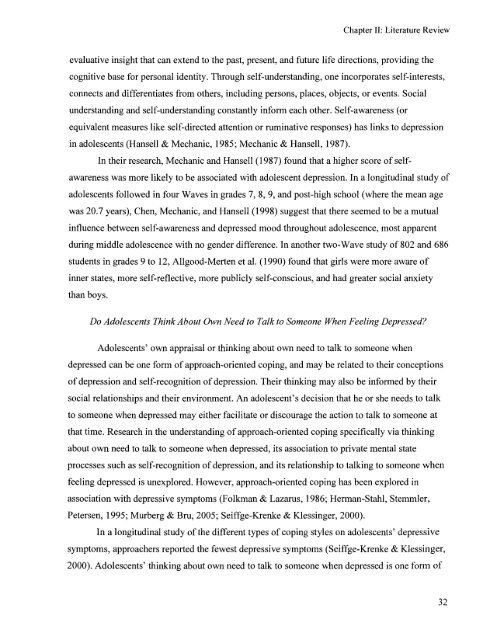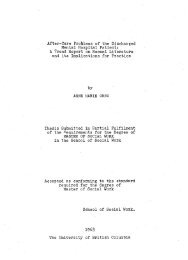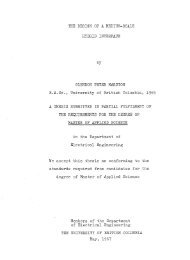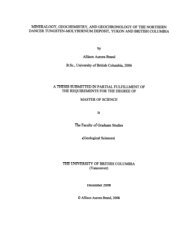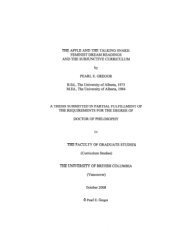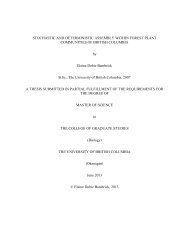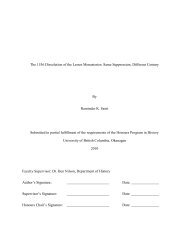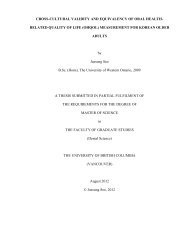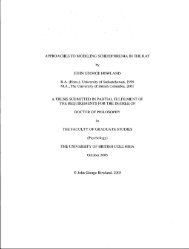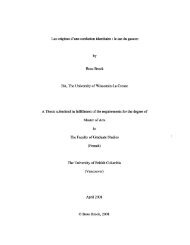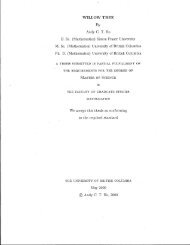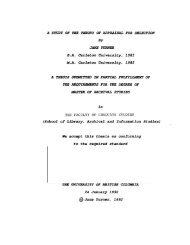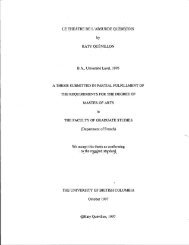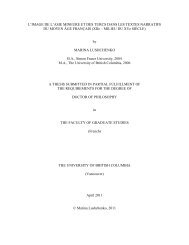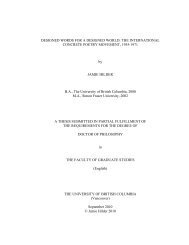how do adolescents define depression? - cIRcle - University of ...
how do adolescents define depression? - cIRcle - University of ...
how do adolescents define depression? - cIRcle - University of ...
You also want an ePaper? Increase the reach of your titles
YUMPU automatically turns print PDFs into web optimized ePapers that Google loves.
Chapter II: Literature Review<br />
evaluative insight that can extend to the past, present, and future life directions, providing the<br />
cognitive base for personal identity. Through self-understanding, one incorporates self-interests,<br />
connects and differentiates from others, including persons, places, objects, or events. Social<br />
understanding and self-understanding constantly inform each other. Self-awareness (or<br />
equivalent measures like self-directed attention or ruminative responses) has links to <strong>depression</strong><br />
in a<strong>do</strong>lescents (Hansell & Mechanic, 1985; Mechanic & Hansell, 1987).<br />
In their research, Mechanic and Hansell (1987) found that a higher score <strong>of</strong> self-<br />
awareness was more likely to be associated with a<strong>do</strong>lescent <strong>depression</strong>. In a longitudinal study <strong>of</strong><br />
a<strong>do</strong>lescents followed in four Waves in grades 7, 8, 9, and post-high school (where the mean age<br />
was 20.7 years), Chen, Mechanic, and Hansell (1998) suggest that there seemed to be a mutual<br />
influence between self-awareness and depressed mood throughout a<strong>do</strong>lescence, most apparent<br />
during middle a<strong>do</strong>lescence with no gender difference. In another two-Wave study <strong>of</strong> 802 and 686<br />
students in grades 9 to 12, Allgood-Merten et al. (1990) found that girls were more aware <strong>of</strong><br />
inner states, more self-reflective, more publicly self-conscious, and had greater social anxiety<br />
than boys.<br />
Do A<strong>do</strong>lescents Think About Own Need to Talk to Someone When Feeling Depressed?<br />
A<strong>do</strong>lescents' own appraisal or thinking about own need to talk to someone when<br />
depressed can be one form <strong>of</strong> approach-oriented coping, and may be related to their conceptions<br />
<strong>of</strong> <strong>depression</strong> and self-recognition <strong>of</strong> <strong>depression</strong>. Their thinking may also be informed by their<br />
social relationships and their environment. An a<strong>do</strong>lescent's decision that he or she needs to talk<br />
to someone when depressed may either facilitate or discourage the action to talk to someone at<br />
that time. Research in the understanding <strong>of</strong> approach-oriented coping specifically via thinking<br />
about own need to talk to someone when depressed, its association to private mental state<br />
processes such as self-recognition <strong>of</strong> <strong>depression</strong>, and its relationship to talking to someone when<br />
feeling depressed is unexplored. However, approach-oriented coping has been explored in<br />
association with depressive symptoms (Folkman & Lazarus, 1986; Herman-Stahl, Stemmler,<br />
Petersen, 1995; Murberg & Bru, 2005; Seiffge-Krenke & Klessinger, 2000).<br />
In a longitudinal study <strong>of</strong> the different types <strong>of</strong> coping styles on a<strong>do</strong>lescents' depressive<br />
symptoms, approachers reported the fewest depressive symptoms (Seiffge-Krenke & Klessinger,<br />
2000). A<strong>do</strong>lescents' thinking about own need to talk to someone when depressed is one form <strong>of</strong><br />
32


